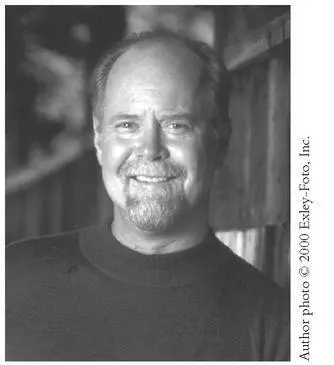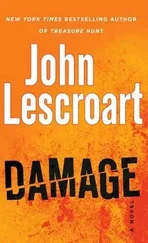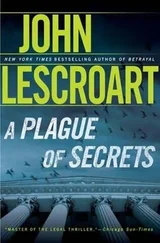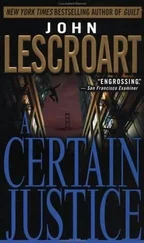“Certainly,” Georges said, his smile ice. “I’d be glad to end this farce.”
“Well, then. The man who trailed Monsieur Watkins, here, had no limp. I contend that you have no limp but rather a substantial lifter in your left shoe. You can easily demonstrate which of us is right by taking off your shoes.”
“This is ridiculous!”
Lupa shrugged, then leaned back in his chair. “Go on, Georges,” Paul urged. “Let’s get to the bottom of this.”
Georges looked around at each of the group, and the sentiment was unanimous. I saw his glance at the tapestry from behind which Watkins had entered, and my grip tightened on my pistol.
Finally, he came to some conclusion and reached down as if to undo his shoelaces. How he did it I don’t know, but by some sleight of hand, he reached into his jacket and came out with a pistol which he trained on Lupa, the hammer cocked.
“All right, now,” he said calmly, “no one is to move.” But I had already moved. My pistol was out. “Georges, drop it!”
He turned toward me and fired at the instant I did. I was hit under the left collarbone, and spun backward and to the floor. Tania screamed and crossed over to me. I felt her place my head in her lap.
“Jules, are you all right? Jules.”
I couldn’t speak, and the room began to spin before me. There was a pounding from outside, then the sound of a door opening and boots on a wooden floor. I opened my eyes and tried to focus them. It looked as though Magiot and his men had entered. They gathered around Georges, who lay prostrate on the floor.
Lupa spoke, the words coming to me as though through wads of cotton or gauze. “There’s your man, inspector. He’s dead.”
I passed out.
17
It is now August, and we are entering our second year of war. I write in the sitting room, propped on the settee with a pad before me. It looks as though Lupa was right. The war may drag on for a long time.
Miraculously, the bullet did no major damage, and the doctor estimates that I’ll be completely recovered in another month. In all, it’s been a pleasant recovery period. I’ve used the time to write this report of my last case. Really nothing formal, of course. Something to read in my advancing years and with which to recall the way it all had been.
Lupa has written twice, from Corsica. After that last Wednesday meeting, Magiot took him in for questioning, but released him after Tania went in and spoke for him. Within twenty-four hours he was gone, taking Anna with him. His first letter was written obviously in the first flush of relaxation. He said it was his first vacation in four years. The second letter, however, showed signs of restlessness, and I wouldn’t be at all surprised if he were to return to the fray before long. There was no talk of marriage to Anna, though I gathered that they were together still. Watkins is back in England, presumably with his olives.
There were several strange offshoots from the Lavoie case. Paul and Henri both decided to enlist, and even though Henri was rejected, it brought forever to an end our beer gatherings. And Tania . . .
Tania lost her second son three months ago, and for a time she fell back into thinking herself old and useless. Her eldest son, the one resembling Lupa, received a furlough and came home to comfort her. After that, she recovered a bit and began nursing me daily. Fritz complained about constantly having a woman in the house, but I was happy to have her. One day, she entered my bedroom early in the morning and threw back the curtains, letting the sun stream in. She was beaming.
“Monsieur Giraud?”
“Oui.”
She came and sat by the bed.
“I’m afraid my fears of approaching old age have been groundless.”
“That’s what I’ve always said, my dear.”
“But more than you know, love. To avoid a scandal, I’m afraid you’re going to have to marry me.” Our laughter shook the house.
And so, six weeks ago, Madame Chessal became Madame Giraud. We hope our child will be a girl.
After Tania and Danielle moved in, Fritz eventually moved out, but there were no hard feelings. He’d been in touch with Lupa constantly, and planned to go home to Switzerland for a while, and then on to Corsica. Since they’d begun the rationing of food in earnest, losing Fritz wasn’t the tragedy it might have been.
Perhaps strangest of all, Magiot has been around to visit. He’s apologized several times for his earlier opinion of me. He’d no idea I was, in his words, “such a man of action.” He’s even gone so far as to say I deserve my retirement.
We had the Pulises and the Magiots around for dinner the other night, and Magiot said he’d heard I was to receive the Legion d’Honneur .
Though I had by now earned his respect, he couldn’t resist the opportunity to get in one last dig.
“Do you really think, Jules,” he asked, “that the medal is for your efforts in the Lupa business? It seems a rather grand gesture for what was really a rather insignificant episode. Compared to the larger war, I mean.”
“My dear Jacques, there’s no doubt in my mind that the recognition is for what I do best.”
“And that is?”
“I’ll tell you what that is,” Henri said. “It’s for making the finest damned beer in France.”
“Hear, hear,” said my wife.
I beamed all around and raised my glass with my good arm. “I’ll drink to that,” I said proudly. And so we all did.

JOHN LESCROART, the New York Times best-selling author of such novels as The Mercy Rule , The 13th Juror , Nothing but the Truth , and The Hearing , lives with his family in northern California.
1
Commander in chief of French army.













